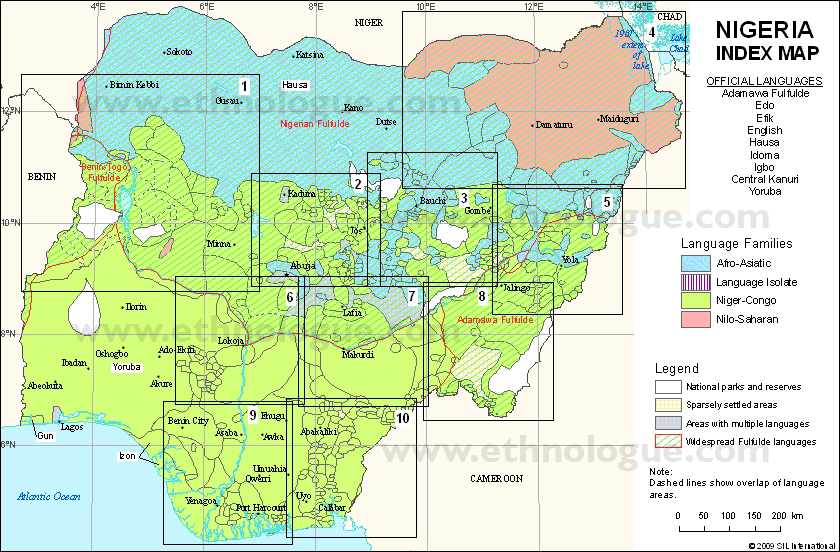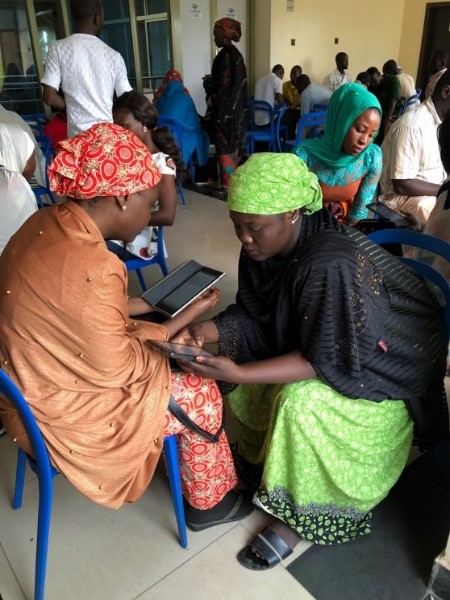Conducting survey research in highly multilingual environments presents unique challenges.
Multilingualism adds a layer of complexity to ensuring a representative sample. If most of the population speaks two or more languages, it becomes difficult to determine which language is the most appropriate for each interviewee, as well as which translation is more easily understood for complex topics (ex. conflict, corruption, civil engagement, reform, etc.). Furthermore, certain languages or dialects can lack a formal writing system. While these languages can be represented phonetically with the roman alphabet, this can prove challenging for interviewers to uniformly understand across different teams.
For example, these linguistic challenges are present in Nigeria. As one of the most linguistically diverse countries in the world, Nigeria is home to over 500 languages and distinct dialects. Furthermore, Nigerians often speak a more localized language in addition to a major language (English, Hausa, Igbo). The map of languages provided by Ethnologue represents the most common languages and language groups in the country.

Lewis, M. Paul (ed.), 2009. Ethnologue: Languages of the World, Sixteenth edition. Dallas, Texas: SIL International. Online version: http://www.ethnologue.com/16.
How then, does ORB navigate multilingualism while remaining efficient in the places that we work? Rather than translate the questionnaire into every language possible in a country, we rely on the knowledge of our local partners to identify which languages and methods comprise a representative sample. This process follows several steps:
1. First, we review the sample with our local teams by administrative divisions. For example, language use in Nigeria is highly segregated by geography. While English and Pidgin may be used across the country, large proportions of the population use Hausa in the North, Yoruba in the South-East, and Igbo in the South-West. While language distribution by geography may not be applicable in every context, it is best practice to consider this before embarking on research.
2. Once we select applicable languages, local teams translate the instruments into each language to ensure consistency across questionnaires. For colloquial languages, we conduct group sessions on oral translation, where interviewers work together to agree upon which translations best represent the written questionnaire. Often, interviewers create a “cheat sheet” with more complex concepts translated into the applicable word or phrase and share this among the full interview team for use. This engages interviewers with the material more deeply; groups spend considerable time debating what phrasing best conveys the message.
Figure 1. Interviewers Practicing Survey in Local Languages, Abuja, Nigeria
Figure 2: Cheat Sheet Created by a Team in Niger Standardizing Concepts in Different Languages
3. Third, we review language data by enumerator during data collection. This ensures that one enumerator is not frequently interviewing in a different language in comparison to others working on the same team in the same area.
4. Fourth, we review language use by ethnicity of respondent. Language use frequently stratifies among ethnic identities in many of the places that we work. When a respondent utilizes an irregular language, we can investigate the reason and ensure that the recorded data is accurate.
Instituting these measures regularly allows us to assess sample representativeness, ensure respondents understand the questionnaire, and address any potential issues while the team is still in the field.

